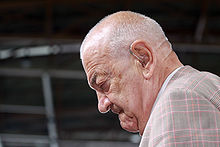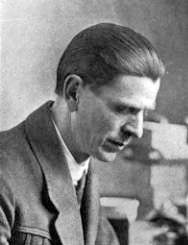“Scientific Fundamentalism”: Reply to a Materialist
Posted on 29 May 2013, 12:51
A few weeks ago a broadside in the local newspaper blasted me and what I represent. The writer was a psychiatrist.
For him the self is “lodged squarely in the field of clinical and research psychology, where it is rigorously defined as a creation of the brain’s frontal lobes.” The writer is what we call a metaphysical materialist. He does not believe that a brain is the soul’s instrument. For him the spiritual soul (which I regard as the conscious self) is a fiction, the stuff of superstition, of blind faith. The same with life after death. The same with God. Most materialists don’t believe in free will either. Like a computer, we are controlled by whatever input comes our way.
This is a grisly view of human nature, and it is, sorry to say, the preferred view of most psychologists and psychiatrists and even a majority of philosophers teaching in our universities today.
But it’s not a scientific position. Materialists seldom look seriously at evidence that contradicts their dogma. And when they do, it’s not to learn what they might from it, but to debunk it. This is not how science is supposed to work. It’s how fundamentalism works. It would be a mistake to think that fundamentalists are to be found only among the religious.
The author was particularly contemptuous of paranormal research. A couple of months earlier he wrote another column on the near-death experience (NDE), which he dismissed as hallucination. But recent paranormal research into the NDE points with great force away from that conclusion. It virtually requires a dualist view of human nature: that we are a soul, or immaterial self, interacting with a body, and that we are destined to live on when the body, with its brain, dies – though for how long it cannot say.
What is paranormal research? I could choose from hundreds of examples, but I’ll settle on only one. It involves mediumship. (I’m well aware that the word “medium” evokes contempt in all sorts of people, especially religious people, but that is a great mistake.) If you read the following with care, you will begin to see what I, and most other parapsychologists, regard as good evidence. I briefly alluded to this famous case in my previous blog.
In 1985 a chess game was arranged between a living chess champion, Viktor Korchnoi, and a spirit claiming to be the deceased Hungarian grandmaster Geza Maroczy. The game was arranged by an amateur chess player, Dr. Wolfgang Eisenbeiss, who sought evidence for survival. The medium, Robbert Rollans, did not know how to play chess and knew nothing about the history of the game, including the players involved. Rollans put out a call to the “Other Side” for any deceased grandmaster willing to play the game. “Maroczy” answered the call.

The game lasted for over seven years and ended with Korchnoi (below) the victor. Parapsychologist Vernon Neppe, a former South African chess champion who analyzed all 48 moves, commented, “This level could not have been achieved by the medium even after great training, assuming the medium was not a chess genius.”

But “Maroczy” (below) wasn’t finished. Eisenbeiss and Korchnoi drew up a list of 81 questions about Maroczy’s life and asked them through Rollans. “Maroczy” answered 79 out of 81 correctly. Many of the answers were so difficult to authenticate that, according to the Oxford-trained parapsychologist Chris Carter, “a professional historian from Hungary was employed to track them down.”

Carter concluded that the spiritual survival of Maroczy was the only plausible explanation for the information—the brilliant chess moves and the many highly specific autobiographical details—that came through the medium.
Agree or not, anyone can see that this is evidence—and in my view very compelling evidence. And it’s only the tiniest tip of a mountain of similar evidence. The full account of the Maroczy case is in Carter’s much praised book Science and the Afterlife Experience, which I strongly recommend that materialists read with care. Another place to start is with any of Michael Tymn’s recent books published by White Crow.
Stafford Betty’s novel The Imprisoned Splendor is published by White Crow books and available from Amazon and all good online book stores.
Read comments or post one of your own
|